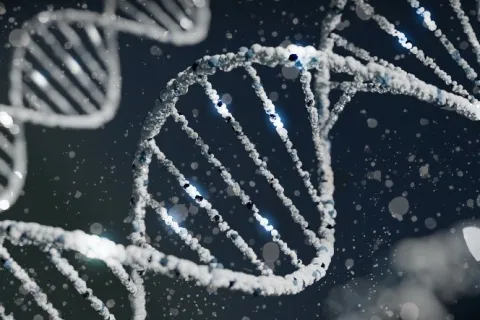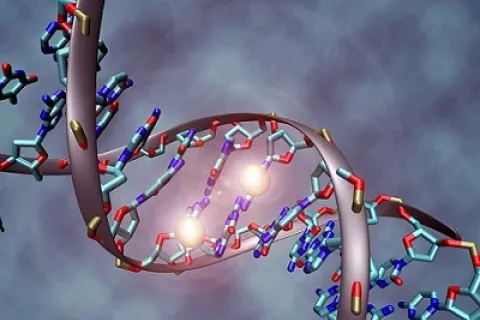Genetic testing for autism
By Dean Hartley, Autism Speaks’ Senior Director of Discovery and Translational ScienceWe recommend anyone with an autism diagnosis get genetic testing. Unfortunately, less than half of people with autism do.
We recommend anyone with an autism diagnosis get genetic testing. Unfortunately, less than half of people with autism do. Current genetic testing will not give answers to everyone, but without testing we will not be able to give information to some individuals or families that could explain the possible cause of autism and possible future medical conditions.
ASD genetic testing
When you are ready to have genetic testing, we suggest you start with the provider who diagnosed you or your child with autism. That person should be able to refer you to a neurodevelopmental pediatrician, a medical geneticist, or a clinic that specializes in autism or developmental disorders and has experience in genetic testing. We do not recommend directly seeking a company to do genetic testing. A medical specialist or genetic counselor is best qualified to help you understand beforehand what the test will or will not provide and the interpretation of your results.
Once you see this specialist, you will likely be offered the current standard of genetic testing, called microarray testing. Of those who do, 3 to 10 percent will find a genetic variation that likely accounts for a person’s autism. One reason for these small percentages is the limitations of microarray technology – it only covers a small amount of our 6 billion letters of our DNA that we get from our parents.
Exome sequencing
Genetic testing is rapidly changing. In June, a group of clinician-scientists recommended elevating the standard genetic test to exome sequencing. This test looks at more of the genetic code – a portion called the exome – that encodes some 20,000 genes that are involved in making a human being. With this more detailed information, we can find genetic variants linked to autism that we couldn’t see before. This may be another testing option available to you, and in the future, it may be the standard test that is offered.
Exome sequencing is a more detailed test that looks at the DNA that codes for genes. With this test, we can find the potential cause of autism about 10 to 30 percent of the time, with a greater chance for genetic findings for people who have intellectual disability.
The American Academy of Pediatrics also recommends anyone with a developmental delay, intellectual disability or autism diagnosis get specific genetic testing for Fragile X syndrome, which can’t be picked up by microarray or exome sequencing.
Genetic testing can also find changes in your DNA that we don’t yet have enough information about to tie to autism. With more studies and larger study populations, future research findings will tell us more about these links. Because genetic testing is evolving and new information is coming out all the time, it is important to stay in touch with your genetic testing provider. There may be updates to genetic tests or what the results can tell you. A DNA change not detected by an earlier test, or a change that was detected but we didn’t know was linked to autism, could become important for you in the future. Your specialist or genetic counselors can help guide you as new tests or information becomes available. As insurance coverage changes and new standards are adopted, you may now be covered for these new tests.
Benefits of genetic testing
Genetic testing has many benefits. For some, it can bring peace of mind to know the likely cause of autism for that person and reduce the diagnostic odyssey of going from provider to provider to get answers. It can also help you and your provider plan for the future and appropriate health monitoring, and possibly fewer medical tests down the road. If your test finds a particular genetic variant we know is linked to another health condition, you may be able to access treatments or therapies sooner that can improve your health or daily quality of life.
Genetic testing can be a life-saving screening tool. Some variants linked to autism carry a high risk for other serious illnesses. For example, individuals with a PTEN variant have a higher than normal risk for cancer and other complications. Armed with this information, people with this variant can be screened more often for cancer. Knowing that you have a genetic change linked to a serious illness, like epilepsy or other health conditions, can help keep you healthy and thrive.
Your test results can also give you information about other common health conditions for people with autism. For example, if a gene change is linked to certain GI symptoms or hormone production, health providers can use that information to screen and monitor for these issues at medical visits so that they can be treated early or potentially prevented.
Families can also join a genetics research study to help us understand more about and find new genetic variations linked to autism to help more people in the future. Genetic testing is also part of SPARK the world’s largest autism research study. If SPARK uncovers a genetic finding related to autism, that information is given back to study participants at no cost. See how you can get involved with SPARK.
Genetic testing can give you a lot of useful health information for people with autism. Ask your provider about the best way to get genetic testing near you.







